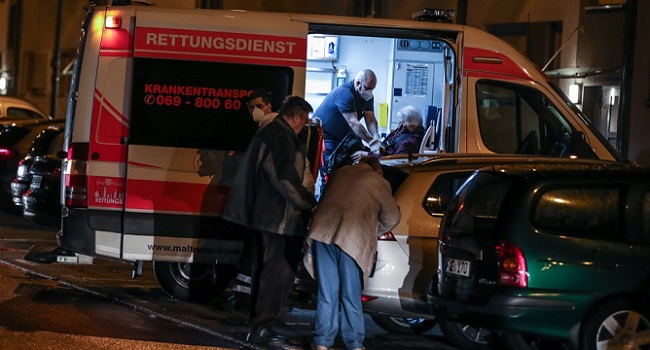
The eastern German state of Saxony will from Monday impose drastic measures shuttering schools, kindergartens and most shops to curb transmission, after it became the worst-hit coronavirus hotspot in the country.
“The situation in hospitals are not only tense, but extremely dangerous,” Saxony state premier Michael Kretschmer said on Tuesday, warning that in some hospitals, intensive care wards were already full.
The state has reported an incidence rate of 319 cases per 100,000 people in the last seven days — more than twice that of the national average at 147.
The situation is even more severe in some towns within the state — in Bautzen for instance, the infection rate is above 500 cases per 100,000.
Chancellor Angela Merkel’s government has repeatedly said that numbers need to be brought down to 50 per 100,000 people in order for officials to effectively carry out their trace and isolate strategy.
With the situation showing no signs of improving in Saxony, regional authorities have decided to toughen restrictions beyond those agreed with Merkel two weeks ago.
Unlike elsewhere in Germany, Saxony’s schools and kindergartens will be closed from Monday, a week before winter vacation was due to start. Students will be required to continue their classes from home.
Shops selling non-essential items will also have to close, a blow to business before the festive season.
Visits to elderly care homes will be tightly controlled, with negative tests and masks required.
Germany has to date ordered far less stringent curbs than other major European nation, after coming through the first wave of the pandemic relatively unscathed.
But Europe’s biggest economy has been severely hit by a second wave, with daily new infections more than three times that of the peak in the spring.
With an eye on the Christmas holiday season when many families are expected to be on the move across the country, calls have grown for Merkel and Germany’s 16 state premiers to agree tougher rules for the festival period.
Guidelines drawn up two weeks ago were to allow social contact restrictions to be eased over Christmas and New Year for up to 10 adults to meet, up from five from two households currently.
Harder hit states have however opted to take a tougher line — Berlin state for instance has said it will maintain the stricter rule through the holiday period.
On Tuesday, Thuringia state also confirmed it would also not loosen restrictions over Christmas.
AFP




